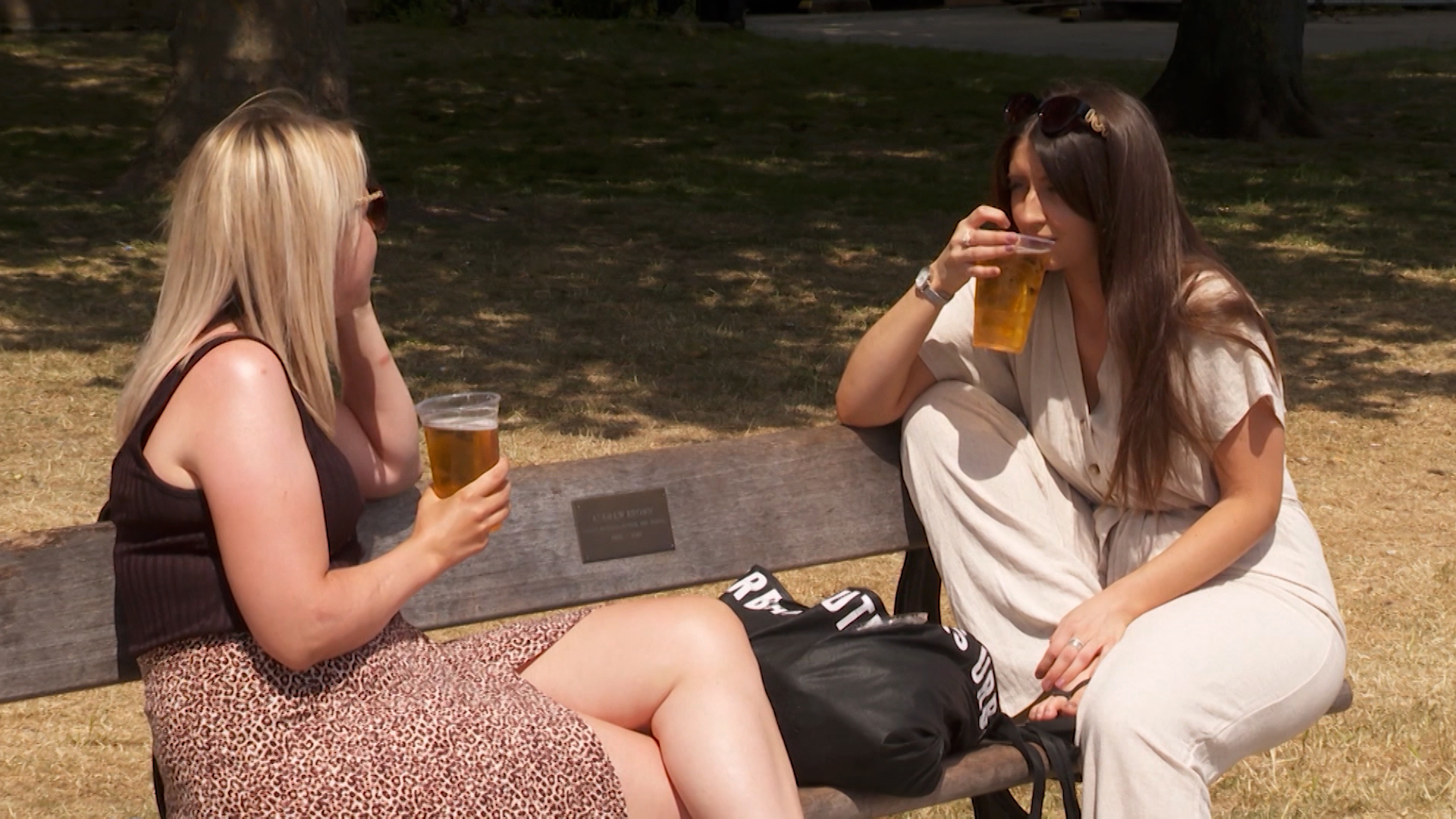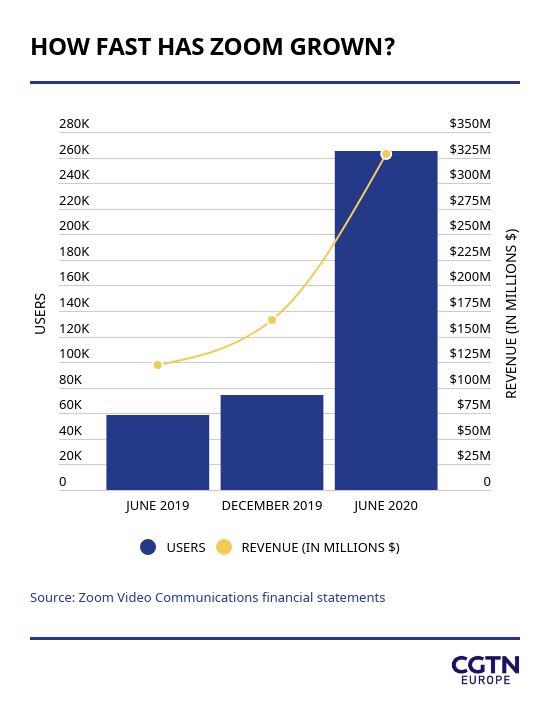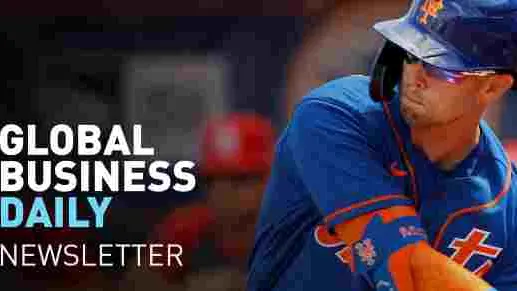"We've seen more change in 10 weeks than we’ve seen in the previous 10 years."
As global governments continue to wrestle with the knock-on effects of the pandemic, companies such as advertising giant WPP are looking at how their offices are changing – and as its CEO Mark Read told us in today's interview, the speed at which work is moving towards a new model.
It's not just the way we work that's changing – so are our habits and the way we spend our downtime. The UK stopped using coal-powered electricity plants in April and hasn't turned them back on since, as demand has dropped so noticeably. And because people aren't out and about, browsing shops and buying not-so-essential goods, the shops and the wider economy is feeling the pinch.
But while you and I may be saving on the little extras in lockdown, some of the most wealthy are browsing the sort of play things they like to buy… like the New York Mets baseball team , for example. Unlike the recent move to buy Newcastle United (the English soccer team), this inquiry is from private equity, rather than a sovereign wealth fund.
Finally, today's graph looks at one business that has flourished during the pandemic – Zoom. We chart the video-conferencing company's meteoric rise.
Happy reading,
Patrick Atack
Digital business correspondent
**P.S. Did you know we send this briefing by email, too? **
You can sign up to receive it here.

The French government launched a $17 billion fund for its aerospace industry , which it says could lose 100,000 jobs following the pandemic and subsequent air travel drought. Of the $17 billion, $1.7 billion will be spent over three years to support research into environmentally friendly flying technology.
According to the UK's energy network, the National Grid, the country will surpass two months **without using power from coal-fired power stations **on Wednesday. Wind and solar power use has surged during the lockdown and it's the first time since the Industrial Revolution at the end of the 19th century coal hasn't been used.
Household spending has dropped across Europe and was the main factor behind the 3.6 percent fall in eurozone GDP , according to Eurostat. The falling level of investment in the European economy was also noted as a reason for the drop.
A so-called "hackers-for-hire" network has been uncovered by the Citizen Lab, part of the University of Toronto, with elected officials, lawyers, hedge funds and companies all targeted by the "Dark Basin" group.
Meanwhile, Japanese car manufacturer Honda has confirmed it has been the target of a cyber-attack . Its internal servers and email services have been affected, along with "production systems outside of Japan" the company said in a statement.
The Seoul Central District Court has not granted South Korean prosecutors an arrest warrant for Samsung boss Jay Y. Lee . He is suspected by authorities of accounting fraud and stock manipulation and while the court did not agree to mandate his arrest, the ruling was far from an acquittal. Samsung denies the claims. Lee has previously spent a year in jail on bribery charges.
Japan's money stock – the cash in circulation or deposits – has reached a historic high, as Japanese companies hoard money amid the pandemic downturn . Deposits alone jumped 1 percent in May, to $7.12 trillion.
France's central bank has warned the European Union's **second-largest economy may only return to pre-pandemic levels in 2022 ** – predicting a contraction of more than 10 percent. It also said unemployment in the country could peak at more than 11 percent early next year.
Following a jump in employment figures, thanks to the partial reopening of the U.S. economy, Republicans in Washington D.C. have questioned the need for further public-funded recovery packages. The downturn has "bottomed out and begun to turn around ," according to Senate leader Mitch McConnell.
UK tea brand Yorkshire Tea has taken a stand on social media and told customers who complained about the company's "Black Lives Matter" stance to not buy their products. "If you are boycotting teas that stand against racism, you're going to have find two new tea brands now ," PG Tips' account added.
Sports are far from back to normal, but that hasn't stopped the speculation over ownership and buyouts, with the valuation of institutions such as the the New York Mets baseball franchise hit by the pandemic downturn. Apollo Global Management and Blackstone have reportedly opened talks with the club , hoping to extend their portfolio, which boasts the Philadelphia 76ers (basketball), the New Jersey Devils (ice hockey), and Crystal Palace (soccer).
Video
The recent heatwave in the UK was arguably the perfect setting for that great British institution: the pub. Now, resourceful landlords are tapping in to what their customers want. While pubs in Britain are not due to reopen until later this month at the earliest, some punters have found a way to sneak a cold pint from takeaway counters and pop-up stalls.
02:37

Mark Read the CEO of WPP, the world's largest advertising agency, spoke to CGTN Europe about the future of work in his company and what opportunities a new work environment could offer the firm.
First of all, can you see your company and your staff ever returning to a full office situation like that pre-COVID-19?
I don't think we'll ever go back to working in exactly the way that we were before. It's probably a good thing. When I talk to our people on town halls. Number one question they ask me is, can we have more flexible working in the future? I think the other observation I'd make is many senior executives who perhaps have never tried working from home have actually rather enjoyed the experience.
And so I think that we will become a much more flexible company in terms of how we approach people working in the office in the future. There's no doubt about that at all.
And you have thousands of staff all over the world and offices. How have they been working during this period? Has everyone been at home or what's been the process?
So around 16 March we [asked] about 100,000 people outside of China... to work remotely, which effectively meant working from home. They did that over a weekend. And I'd say, you know, it's been a difficult experience for many people. I mean, it's ok for me, I live in a house with a garden, but many of our younger employees just starting out their career, live with their parents, you know. And actually, for them going to the office is part of their daily life.
So I don't think it's been an easy experience for anyone. But I have to say, you know, people have performed magnificently. Work has got done, ads have been made, we've been able to produce things. And I sayWPP is in a fortunate position to be able to continue to work. We're not in a tough situation like an airline or a hotel where we have to stop operations.
So, actually, when I talk to our clients, they would say that business has continued pretty much as normal. In fact, in many ways it's been faster, it's been more agile, the creative quality has been just as good, if not in some cases better, than it was before. So I think we've really adapted extremely well to this new working environment.
And what has been the experience in terms of getting people back to the office in your offices in China? And how would you adopt what you've learned there in the UK, in Europe and elsewhere?
The observation I would make is the same the governments around the world are experiencing. It's a lot harder to take people out of a lockdown than it is to put them into lockdown. And so we have four principals: returning to work has to be voluntary, has to be in a safe environment, has to be gradual. And we have to take into account how people get into the office.
We really applied those in China. People have come back pretty gradually. We started by bringing maybe 20 percent of the workforce back, and then we're around 50 percent on alternate weeks. And I'd say today we're running at about 85, 90 percent of capacity.
But I doubt it will ever go back. As I said before, having a hundred percent of people in the office at any one time in the way that we used to. And that's going to pose interesting challenges for the future of offices and office space infrastructure and any other number of things.
So much of how people shop has moved online. At the same time, it seems that there's been a lot less shopping going on. From an advertising marketing point of view, how do you see the next six to 12 months going in terms of trying to restore consumer spending and sentiment? And what will the High Street have to do?
I mean, no industry is immune from the economic impact and our industry certainly isn't. And I think in aggregate, it has been a negative impact on advertising marketing spend. But I think that those companies that are understanding the changes that are going on in the market at the moment will be those that will be best placed to benefit when they come out.
And I see a number of clients really thinking about that. And we talk to our clients about three phases. The react phase
– what happens at the start. The recover phase
– which I think is where clients are now, thinking about how they come out of it. Most interesting is what we call the renew phase
– how they think about how to change ... to take into account the new consumer behaviors that are no doubt going to exist after this? People are not going to forget how to shop online.
And while I think much of what we used to do will come back, I think it will be a gradual and slow process. When we talk to consumers, the number one thing they miss is going out to dinner with friends. When you ask them how many would actually want to do it? It's really quite a low number. I saw a fascinating study yesterday about epidemiologists and what they expect to [happen].
And many of them are saying that activities like going out to dinner with friends, going to the cinema, are six to 12 months away before people feel totally safe doing that. So I think this sort of extended period that we're in now will really solidify huge changes in consumer behavior and force more companies to get online.

 简体中文
简体中文

